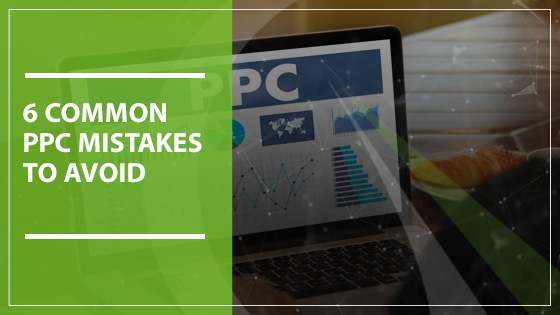It is important to optimize your keyword selection for Google Ads to build a successful campaign. Your goal is to attract the right audiences to your site and increase conversions. If your keywords are too broad or have multiple meanings, people might click on your site without having any interest in your products.
To guide people towards your business and show up in the right search results on Google, it’s crucial to use negative keywords. Let’s dive in deeper and discuss how you can employ this strategy for your ad campaign.
What are Negative Keywords?
Advertisers utilize negative keywords to keep their ads from showing up in unwanted search results. If you’re selling eye glasses, for instance, you may want to include negative keywords like “wine glasses” to exclude people that may be searching similar keywords but looking for a different product.
If people visit your site looking for something you don’t offer, they’ll quickly disappear. This will increase your bounce rate and reduce the number of conversions you receive. Remember: your goal is not only to guide the right individuals to your products, but to “convert” those audiences into buyers. Using negative keywords is a great way to fine-tune your campaign and make it cost-effective.
Benefits of Using Negative Keywords
Yes, negative keywords help you maximize profits, but they do this in a number of ways. Negative keywords have several advantages, including:
- Boosting your conversion rate
- Bringing relevant audiences to your business
- Optimizing relevancy of ad groups
- Barring irrelevant web traffic
- Increasing your click-through rate
- Saving costs
- Increasing return on ad spend

Broad Match vs. Phrase Match vs. Exact Match
There are three different match types for Google ads: broad match, phrase match and exact match. Understanding the difference between these types is essential if you want to attract relevant audiences.
With broad match, your ad will not show if a search includes all of your keywords (even if they’re in a different order). However, it will show if a search includes some of those terms. For example, let’s say you want to use the phrase “used books.” Your ad won’t show up in a search for “used books for sale,” but it could show up in “used novels” or “used book.”
Phrase match lets you avoid an exact keyword for phrases in the same order. Add-on words may be included, but your ad won’t show up if all the terms are present in the same order. For example, if you type in “used books,” “used books near me” and “gently used books” won’t show your ad. However, your business could show up in searches like “mystery books” and “used mystery novels.”
With exact match, your ad will not be shown if a searcher types in the exact keyword in the same order (and without any additional words). If you want to use the negative keyword phrase “used books,” your ad won’t show up if someone looks up that exact phrase. However, it will show up in a search for “books used,” “used book,” and “gently used books.”
How to Know What Negative Keywords You Should Use
Make a list of 10-20 keywords you want to use for your advertising campaign. From there, perform a manual Google search yourself to see what suggestions come up. If any irrelevant search results appear, those are negative keywords you want to target and remove. When searching for “used books,” a few suggested topics include “used books online,” “used bookstores near me” and “used books for sale.” If you don’t have an online shop, you may want to eliminate “used books online” and anything related to web-based book sales. You can also use Google’s search terms report to pinpoint more negative keywords. Examine these on a regular basis to make sure you’re not wasting money on your ad campaign.
Adding Negative Keywords on Google
Adding negative keywords to your Google Ads account is fairly straightforward. Simply navigate to the “Negative Keywords” page and click the blue plus sign in the upper left-hand corner. At that point, you can add your negative keywords and apply them to a campaign or ad group. They can be categorized however you want; for instance, keywords that are too vague, keywords that don’t represent your brand, or keywords that don’t attract target audiences. You will also be able to see all the negative keywords you add to this list.
Partner with an Expert to Learn More about Negative Keywords
If you’re looking to use negative keywords and improve your PPC strategy, Gauge Digital Media can assist you. Our specialists will supervise your ad campaigns, display ads, and amass data to enhance your brand goals. Additionally, we can assist you with web design, SEO, graphic design, social media marketing and e-mail marketing strategies. No matter what you want to market, our experts can help expand your business. Contact us today at 443-201-7709.





